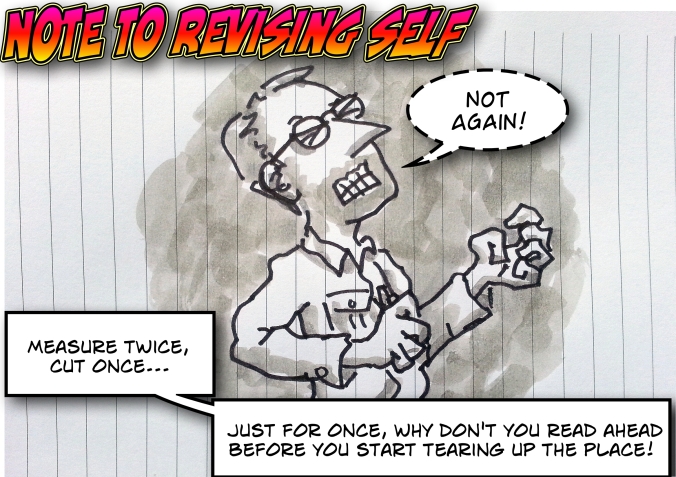
Keck realizes that he really ought to real ahead before he begins to make massive changes to the manuscript because his memory is rather an imperfect instrument.
Okay, it’s getting serious.
Revisions are probably most effective when a writer approaches a text that’s been left to cool for a while.
Like a reader, you approach the text with fresh eyes. You forget most of the intentions and assumptions that you brought to the job and you can only see what’s actually on the page.
Which is lovely.
In my recent experience, there is a considerable downside to all of this freshness and clarity. Sometimes, you actually don’t know where the story is heading. You think you do. After all, this your story. You wrote sketched and planned and outlined and drafted. You might even remember where you wrote the scene and what fountain pen you were using.
But, if you’ve really left a scene sit for months or years, you don’t remember!
And this means that time and time again, you will tear out weaknesses — that turn out to be crucial to the story. You will add lovely touches — that completely destroy revelations coming just around the corner.
My favorite recent one involved missing horses. (I wrote about this just the other day). Our hero borrowed a horse. Then, in later scenes, it seemed to have vanished. Later, it reappeared. I spent a careful hour finding deft and unobtrusive ways to slip the horse back into scenes. (Imagine it passing the salt at the dinner table, or commenting on the weather from time to time).
Still later, I discovered that the horse had been dead the whole time.
It was a casual reference. I ought to have remembered. But it meant that my characters were riding and comforting and passing the salt to zombie horses.
A lovely blue-roan zombie in one instance.
Be warned.